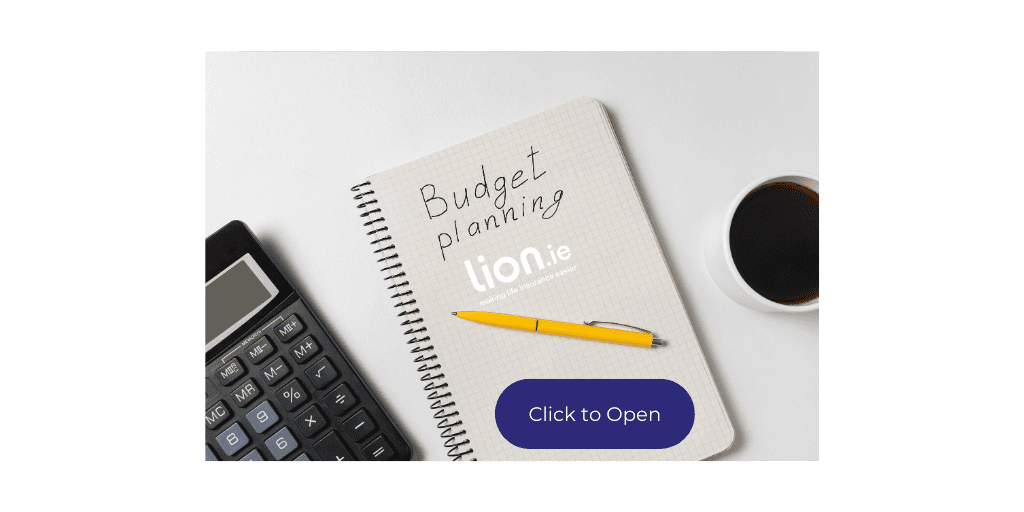How to Make a Financial Plan


Teaching secondary school kids about personal finance is like teaching a monkey to ride a bicycle.
You could probably pull it off, but it’s not really achieving anything.

Most 16-year-olds are more concerned about snaps and TikTok.
They couldn’t give one shiiite about stuff that will be irrelevant to them for at least ten years.
Wouldn’t it be better if all 20-somethings fresh out of college had to enrol in a financial planning course?
Enforced learning, the best kind!
While financial planning sounds like something only the rich do, there’s much to be said.
And I know it all sounds desperately dull.
Still, proper financial planning = being able to spend your money without freaking out about whether you can afford to.
Unless you’re an anorak whose favourite hobby is balancing a spreadsheet, making a financial plan is probably not going to bring you joy.
But it could sort out your cash flow, deal with any debts, and start building a future.
And sure, that’s still not wildly exciting, but it has to be done.
What are the five components of a financial plan?
You can sit down and make up a financial plan on the fly.
Or you can take a more structured approach.
That, friend, is why it’s called a financial plan, and not financial improv or financial whimsy, which equals financial mess.
So, how do you go about making a financial plan?
It’s going to be different for everyone, but some core components should be the same.
1. Outline your goals BUT be sensible about it
This is the big one.
I don’t know your life, your story, or where you’ve wandered in from.
You might want to cut back on spending, set up a pension, or save like mad for a house deposit.
Whatever your reasoning behind making a financial plan, you’ll need a goal as your anchor.
It’s your raison d ‘être, to use a fancy French term.
As we all know, fancy French words make everything sound more legit. Just look at crème eggs, the most extravagant of all le chocolat.
Then, split your goals into short, medium, and long term.
There’s an old business cliche called ‘SMART’—it stands for’ Specific, Measurable, Achievable, Relevant, and Timely’.
It’s a great way to weigh up the goal you will set.
There’s no point in going into financial planning with the ambitions of clearing thousands of euros of debt out of nowhere or suddenly having the liquidity of an oil tycoon.
Pick something for the short term you know you can achieve so that you’re not doomed to fail outright – and then build from there.
2. Organise your financial-y bits
Again, I never said this was fun.
If yer ma was anything like mine, there’s a high chance she had a plastic bag full of receipts in a drawer in her bedroom.
To her mind, that was organising her financials.
Thankfully, we’re now in the modern age, and most bank accounts allow you to track your spending.
It’s ridiculously easy to tap and pay without a worry, only to log into your bank account three weeks into the month and realise you’ll be living a breatharian lifestyle until payday.
That is to say, living on air, energy, and any other woo-woo you can pull out of nothing.

If you’re more analogue, you can write it all down.
Whatever method you choose, your outcome is to get a handle on what you’re actually spending and not just what you think you’re spending.
3. Make a budget for the year
Or whatever time frame makes sense.
Yes, an actual budget.
You’re in for a wild couple of days.
Open Excel.
Set it monthly or weekly and determine how much you intend to spend every month.
And then track everything.
Categories to track include
rent/mortgage,
bills, debts,
household expenses,
transport,
leisure,
entertainment,
kids (an absolute gaping hell hole in every budget),
leisure,
whatever.
What’s the 50/30/20 Rule?
An oft-used guideline for budgeting is the 50/30/20 Rule.
It’s pretty straightforward:
50 per cent of your after-tax income (your take-home pay) should go on needs,
30 per cent on wants,
and 20 per cent into savings.
You can edit the percentages depending on your current situation and goals, though 50:30:20 is a solid baseline that still leaves room for having a life.
And at the end of the month, you’ll see if your budget balances.
You’d be surprised how quickly all the
ah I’ll just get Deliveroo for me lunch
one-offs rapidly add up.
Recommended Budgeting Apps in Ireland
Depending on whether you’re more analogue or digital, a host of apps can make this more comfortable.
AnPost, Spendee, Homebudget– the list goes on.
Mabs.ie has some decent resources for income and outgoing tracking too.
You can also give the lion.ie budget planner a whirl. (MAKE A COPY IF YOU WANT TO USE IT – I CAN’T GIVE ACCESS)
It’s a cinch: fill in your income and your fixed expenses, and it will work out how much you can spend each day.
In the linked template, our couple have €47.74 per day to spend frivolously.
As they go through the month, they update the planner, which tells them whether they’re in “the green”, meaning they’re within budget and can splash the cash, or in “the red”—whoa there, cowboy. Bring your own lunch today.


H/T to the good folks at Reddit, who sired it.
In our example, these guys are saving €800 per month (fair play!), so they seem quite savvy, but they are spending €100 repaying their credit card.
BIG MISTAKE.
The interest on the credit card will be multiple times the interest they are getting on savings.
Pay off the credit card in full, then start saving.
You need to keep an eye on little things like this.
So go ahead, download some of those apps, give them a try, and see what best suits your lifestyle.
The trick is to make it easy to keep up.
Laissez-faire, the French might say.
Because there’s no point in curtailing all your spending and only giving up after a couple of months because you’re miserable.
4. Investigate ways to save some money
You’re probably doing that already, but a little extra work can go a long way.
I’m not about to tell you to ditch your takeaway coffee or to pack your lunch every day.
You’re a fully grown adult and don’t need stupid budgeting advice.
Instead, it’s a case of really coming to grips with your spending.
Do you fully understand the terms of your accounts, credit cards, and loans?
Is there a cheaper package available for internet/gas/electricity/phone?
Is your insurance actually right for you, or does it just keep rolling over on direct debit?
The more you know about all these topics, the better you’ll be at actually nailing down a good deal.
Some resources to get you started:
For full disclosure, those are my articles based on information I have gathered over my many years as an insurance broker.
If you’ve got an insurance policy, it’s worth digging into it.
Especially if you went with your bank for Mortgage Protection, you could be paying through your nose for something that, to be frank, could be shit.
For more general advice on saving, have a look here:
Use a price comparison site to check out deals on electricity, gas, phone, and internet. All that good stuff. Signing up for a new deal could net you swag money cash flow for the next six months, though be careful your contract doesn’t have any nasty cancellation fees. As always, check the small print.
Scan this article on the Independent of 100 ways to save money. Some of it will be relevant; others may not – it’s a good start either way.
5. Keep yourself accountable
The hard part.
It’s a doddle to be really good at this kind of thing for a couple of months only to fall off the wagon dramatically.
It’s a little bit like a diet: it won’t work long-term if it’s all about restriction.
Instead, you need to find a balance so that it becomes a habit and, eventually, a lifestyle.
That was very earnest and zen of me.
Namaste

Still my fave episode of Curb Your Enthusiasm.
So, in case you missed it, jump into the Free Lion.ie Simple Financial Planner Google Sheets Template – make yourself a copy (and a coffee, while you’re at it) and start keeping better tabs on your finances today!
Rope your other half in, your best friend, or even your ma.
Get yourself an accountability buddy.
Celebrate the small wins.
Mostly, be gentle with yourself.
It can’t be all or nothing because you’ll pack it in if you slip up.
Instead, be realistic and reasonable about your financial plan.
Check-in every couple of weeks and assess how it’s really working.
Like, saving money is great but you do still have to live.
C’est fin!
Want to start by saving money on your life insurance?
Here at Lion, we live and breathe Life Insurance and can get you the best deal, including perks and price.
Don’t take my word for it; check out any of our 1,750+ reviews from clients all over Ireland if you fancy.
You can start by calling me at 057 9320836 or completing this questionnaire, and I’ll email you a recommendation.

Finally, if you know someone who’s always skint, be a pal and share this article with them.
That budget calculator could be a lifesaver!
Thanks for reading
Nick
We first published this blog in 2020 and have updated it regularly since then.






